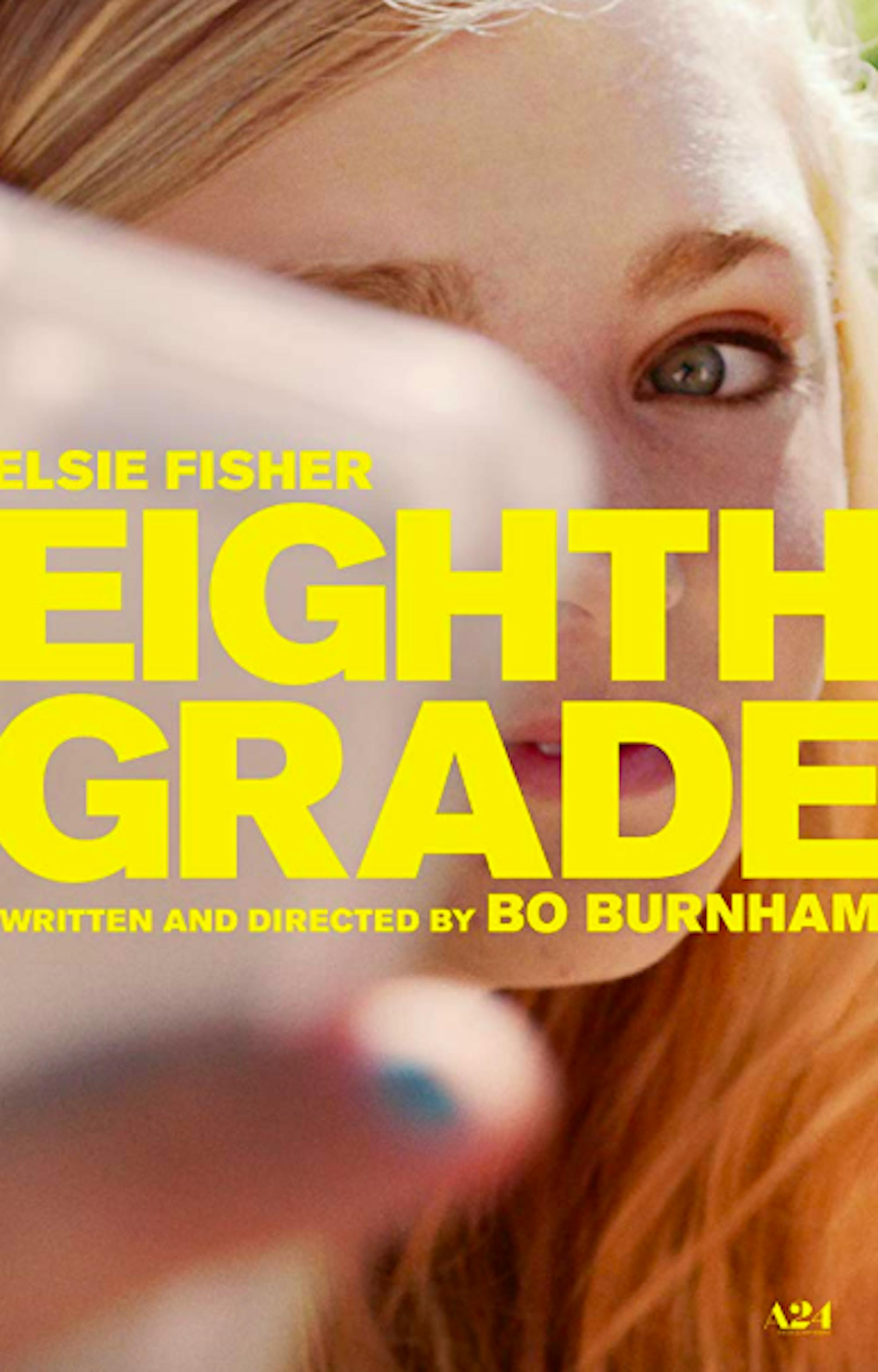I challenge you not to squirm in your seat with familiarity as you watch Kayla, the lovable, socially awkward protagonist of "Eighth Grade" (2018), stumble through her tumultuous final week of middle school. Though it’s been out since July, I would strongly encourage anyone who hasn’t seen stand-up comedian Bo Burnham’s directorial debut to do so, if nothing else because of how agonizingly relatable the experience is.
While Kayla’s story is uniquely her own, it is nearly impossible for viewers not to conjure up their own memories of those same insecurities, hopes and frustrations that come with being a 13-year-old. As meaningful a commentary the film is on adolescence in the digital age, what I found particularly striking about "Eighth Grade" was how effectively it taps into that universal I’ve-totally-been-there feeling of surviving middle school and struggling to find one's own identity.
"Eighth Grade" documents 13-year-old Kayla (Elsie Fisher)’s last week of eighth grade as she navigates uncomfortable conversations with her crush, embarrassing moments with her father, valiant attempts to fit in with high schoolers and crippling insecurities about her image and social status in school. To cope with these anxieties, Kayla, like many of her generation, spends much of her time getting lost in the maze of social media. She posts videos with life advice to her YouTube channel and diligently maintains a cheery online presence in spite of (or perhaps because of) her own self-consciousness.
There is no earth-shattering narrative arc in this film. "Eighth Grade" instead depicts adolescence in snapshots of the routines we all remember from middle school, using universal imagery to help us empathize with Kayla. Fisher nails that painfully familiar prepubescent dialect so riddled with like's, um's, you know’s and whatever’s that it can sometimes be hard to understand what she is really trying to say. Shots of classmates doing the inane things middle schoolers do — building marker towers, sticking their fingers in their mouths to play with the rubber bands on their braces, flipping their eyelids inside out — are interspersed throughout Kayla’s narrative, making the atmosphere feel alive with the exact teenage weirdness that any present-day adult experienced in school.
"Eighth Grade" draws on those shockingly familiar moments from middle school to throw us, startlingly, right back to our own youth. The film depicts that ambiguous chunk of time right before the graduation procession; in caps and gowns, lined up and chattering against a wall of lockers. It shows us that time after the swimming portion of the pool party, when we crowd onto living room couches, half-wrapped in towels with damp hair to watch something (in this case, karaoke) on TV. It so accurately portrays that moment of trying to fit in as we sit hunched at the end of a table of older kids, listening and desperately trying to contribute to the conversation. Although some of us have never been teenage girls, and although Kayla lives in a different generation than most of us, these moments are so relatable for anyone who’s been in middle school that it would be shocking if none of her awkward slip-ups or angsty outbursts didn’t resonate on a deeply personal level.
In addition, however, "Eighth Grade" amplifies those all-too-familiar teenage feelings through cinematography and sound design to help the audience feel exactly as our heroine does. Our stomach drops when the camera slowly zooms out from Kayla as she surveys the pool party she’s been dreading; music blasts as we see her crush for the first time; and the frame shakes jarringly as she stumbles home after an upsetting night. The film not only tugs on those teenage memories we keep in the back of our minds, but it pulls them, writhing, into broad daylight.
In short, "Eighth Grade" is a raw, unfiltered look into the grossness, discomfort and ultimate optimism of adolescence. It so effectively communicates its angst by portraying those unbearably awkward feelings we don’t explicitly remember from middle school — the ones tucked away deep in all of our subconsciouses yet still there all the same. The result is a beautifully cringe-inducing and strangely cathartic glimpse into our pasts.
'Eighth Grade' depicts adolescence unfiltered

A promotional poster for "Eighth Grade," written and directed by Bo Burnham, is pictured.





